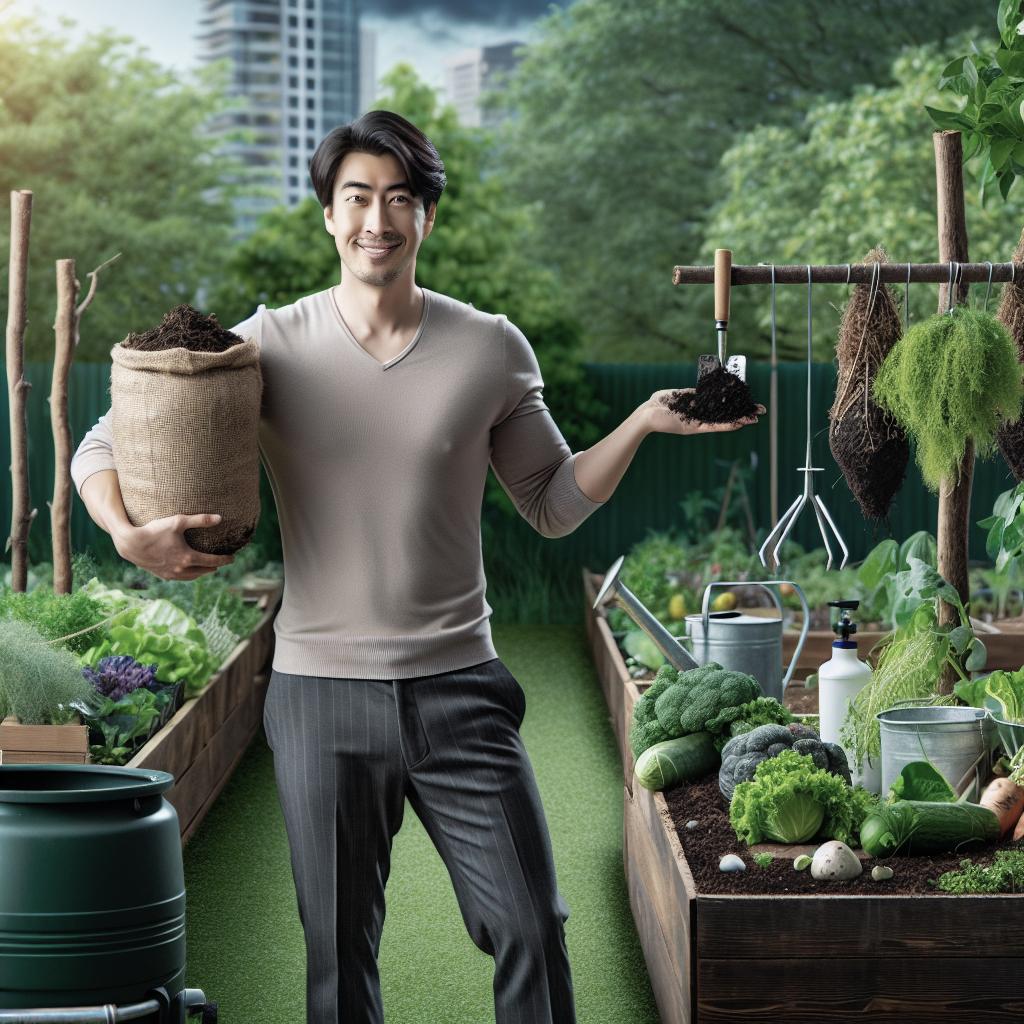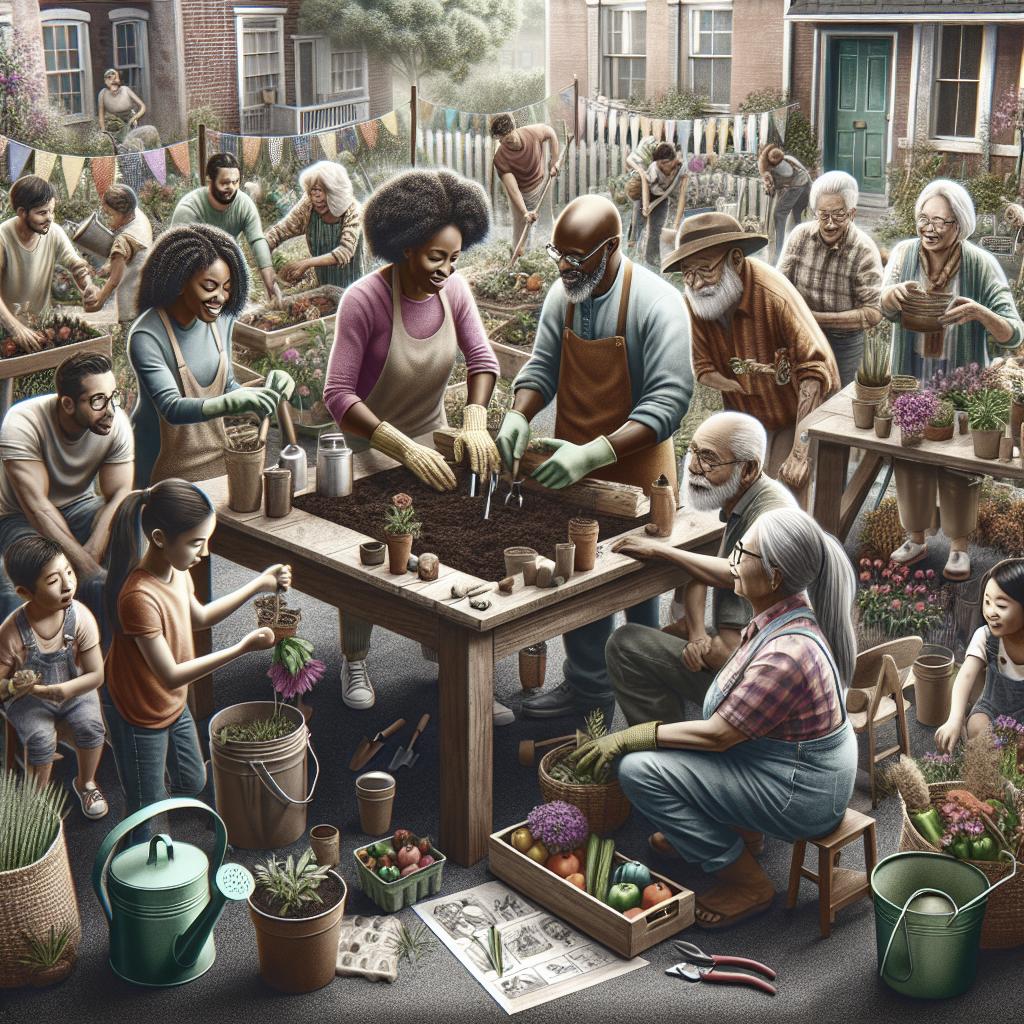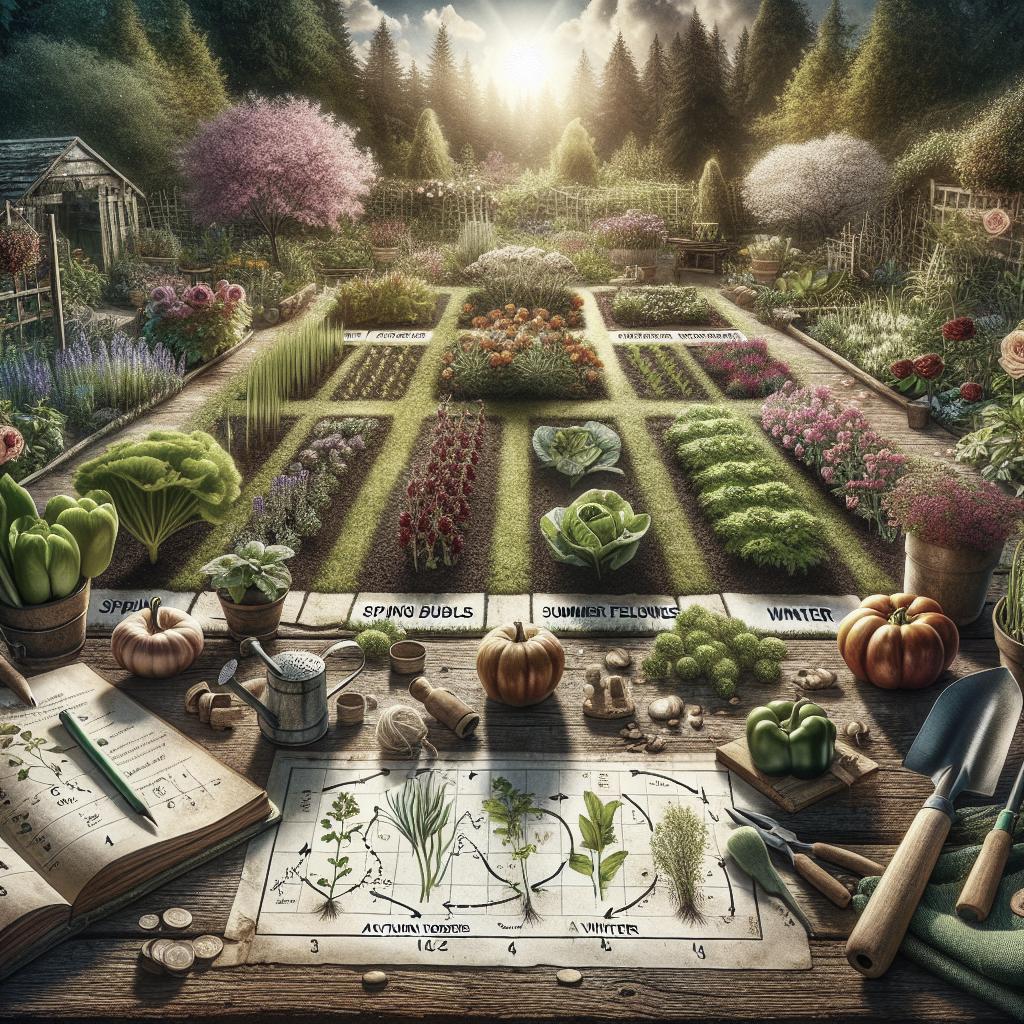In today’s fast-paced world, sustainable gardening offers a myriad of benefits, from reducing carbon footprints to promoting local ecosystems. One compelling example of sustainable gardening can be found nestled behind a dense row of tall trees along Seattle’s bustling Interstate 5, where the Danny Woo Community Garden thrives. This sanctuary provides green space for city dwellers while offering educational opportunities and fresh produce. The garden stands as a testament to the incredible work of volunteers and passionate individuals, particularly Danny Woo, whose initiatives have shaped this urban oasis. This blog post dives into the inspiring story of the Danny Woo Community Garden, the underlying vision that drives its sustainable gardening practices, and the profound impact of volunteerism in maintaining its flourishing ecosystem.
Our Story
Tucked behind a row of tall trees up against Seattle’s busy Interstate 5, it is easy to miss. This community garden is anything but ordinary.
The Danny Woo Community Garden may be hidden behind a forest of trees and bordered by the hum of Interstate 5, but its influence is far-reaching. Founded in 1975, it has grown into a hub of sustainable gardening, community support, and educational empowerment. This unconventional garden, covering 1.5 acres, serves more than just the local aesthetic—it serves the community’s heart and soul. While the garden itself may be easy to overlook, its impact on the local environment and people is anything but ordinary. This space is more than just a collection of thriving plants; it’s a living example of how urban areas can embrace and benefit from sustainable practices. Thanks to the concerted efforts of volunteers and supporters, the garden has introduced organic farming techniques, water-efficient irrigation systems, and native plant species, all of which contribute to a healthier and more sustainable urban ecosystem. Environmental education and community engagement are fundamental to the garden’s ethos. Initiatives for school children, cooking classes, and workshops on sustainable living practices ensure that knowledge about sustainability is shared across generations. Thus, the Danny Woo Community Garden fosters not just plants, but also a culture of care, conservation, and community.
Danny Woo Garden
The name Danny Woo commemorates a dedicated Seattleite whose vision for greener urban spaces continues to inspire. Danny Woo’s contributions to the community were not just limited to providing a space to garden. He envisioned the garden as a cornerstone for community solidarity and an educational playground that promotes sustainable living. Through his unique approach, Woo has attracted a diverse group of gardeners, ranging from elderly immigrants to younger city-dwellers, all of whom yearn for a slice of nature amidst the urban sprawl. Woo’s efforts extend beyond mere cultivation. He introduced the use of eco-friendly materials, abandoned chemical fertilizers, and pioneered composting within the garden, setting an example for sustainable gardening practices. Emphasis on seasonal and native plants reduces water consumption and encourages local biodiversity. The garden’s layout, designed for both aesthetic appeal and functional efficiency, minimizes soil erosion and maximizes sunlight exposure, ensuring a productive harvest year-round. One of the standout features of the garden is its rainwater collection system. By harvesting rainwater, the garden drastically reduces its reliance on municipal water supplies, exemplifying how urban gardens can adapt to and mitigate the impact of climate change. Such sustainable practices not only help conserve resources but also educate the community about the importance of environmental stewardship.
VOLUNTEER
The lifeblood of the Danny Woo Community Garden is its vibrant network of volunteers. These unsung heroes don’t just maintain the garden; they are its very heartbeat, ensuring every plant, path, and plot is cared for. Volunteering at the garden ranges from hands-on gardening tasks, like planting and weeding, to organizational roles such as managing educational programs and workshops. Regardless of the role, each volunteer contributes to the garden’s mission of promoting sustainability and community wellness. Volunteering here provides more than just an opportunity to give back; it’s an educational experience that instills valuable lessons on sustainability and community engagement. Volunteers are trained in sustainable gardening techniques, from using compost effectively to understanding crop rotation and companion planting, all under the guidance of experienced gardeners and horticulturists. These skills not only benefit the garden but also empower volunteers to adopt sustainable practices in their own lives. The communal aspect of volunteering fosters stronger social bonds and a sense of shared purpose. Volunteers from different backgrounds and age groups come together, bridging generational and cultural divides. This diversity enriches the community spirit of the garden, making it a true melting pot of ideas, cultures, and practices. Through their dedication, volunteers ensure that the garden remains a thriving, dynamic space for all to enjoy and learn from.
Knowledge Sharing
Educational programs at the Danny Woo Community Garden are integral to its mission of promoting sustainable practices. By hosting workshops on topics like organic farming, water conservation, and urban composting, the garden becomes a living classroom where theoretical knowledge is put into practice. These programs are often free or low-cost, making sustainability education accessible to all, regardless of economic background. A key focus is on intergenerational learning, where younger volunteers get the chance to learn from the older, more experienced community members. This exchange of knowledge helps preserve traditional gardening practices while integrating modern, sustainable techniques. School partnerships further extend this educational reach, allowing students to experience hands-on learning outside the traditional classroom setting. These initiatives ensure that the garden’s sustainable practices do not just remain within its confines but are spread throughout the broader community. By equipping individuals with the knowledge and skills to implement sustainable gardening in their own homes and communities, the Danny Woo Garden serves as a catalyst for broader environmental change. Final Thoughts The Danny Woo Community Garden is far more than just green space in an urban setting; it’s a thriving example of sustainable gardening and community empowerment. From its humble beginnings behind a row of trees next to Interstate 5, the garden has grown into a beacon of ecological and social well-being. Through the tireless efforts of volunteers and the vision of its namesake, it continues to promote eco-friendly practices, provide educational opportunities, and serve as a social melting pot. Though the garden may be easy to miss at first glance, its impact reaches deep into the community, proving that with a bit of green-thumb dedication and collective effort, we can all contribute to a more sustainable future.
| Section | Content |
|---|---|
| Our Story | A community garden tucked behind trees along Interstate 5, focused on sustainable practices and community education. |
| Danny Woo Garden | Named after a local visionary who promoted sustainable, eco-friendly gardening techniques. |
| VOLUNTEER | Volunteers form the backbone of the garden, contributing to both its maintenance and educational programs. |
| Knowledge Sharing | Educational initiatives ensure the spread of sustainable practices, benefiting the broader community. |


